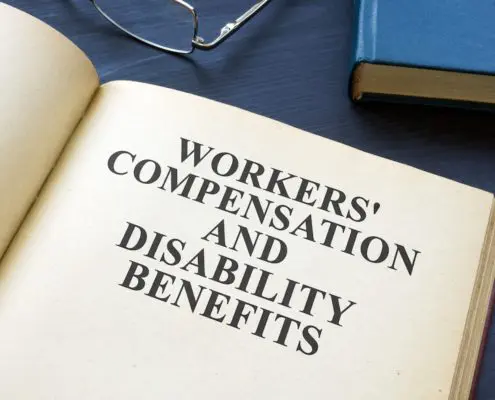Colorado General Liability Insurance Guide
Commercial liability insurance in Colorado will protect your business from lawsuits, should a customer or visitor experience an injury at your place of business, or have their property damaged. It also protects your Colorado business from a lawsuit associated with advertising injury or trademark infringement.
Colorado Business Liability Insurance Key Takeaways
Here, you will learn the following points about Colorado business liability insurance.
Fast Facts About Colorado Small Business
The IRS determines the size of a business based on the number of employees it maintains. Here in the US, a small business is defined as any company with fewer than 500 employees.
According to the Colorado Office of Economic Development and International Trade, Colorado is currently home to more than 653,000 small businesses. These smaller companies are a huge part of Colorado’s economy, as they represent more than 99% of all employment opportunities in the state. More than 1.1 million employees in Colorado work for a small business.
About Commercial Liability Insurance in Colorado
Commercial liability insurance (also called business liability insurance and commercial general liability insurance) protects your Colorado business from financial loss resulting from claims of injury or damage cause to others by you or your employees. A policy typically covers:
- Bodily Injury – physical damage to a person other than an employee at your place of business and injuries caused by you or an employee at a client’s home or work place.
- Property Damage – damage caused by you or an employee to someone else’s property.
- Personal Injury – libel, slander, copyright infringement, invasion of property or privacy, wrongful eviction, false arrest, and similar acts that cause damage to a person’s reputation or rights.
- Advertising Injury – losses caused by your advertising.
- Legal Defense and Judgments – costs to defend against real and frivolous suits and judgments up to the limit of your coverage. Note this generally does not include punitive damages for negligence or willful misconduct.
Important Conditions and Exclusions
While your insurance policy will protect the business from many potential perils, some issues are specifically not covered. These include:
- Employee injury while on the job: Every small business in Colorado is required to carry Worker’s Compensation insurance, even if they only have one employee. Colorado liability insurance will not cover injuries to your staff that occur while they are working, traveling for work, or on their way to / from the workplace.
Colorado Minimum Business Insurance Requirements
Commercial Liability Insurance is not compulsory for Colorado small businesses. In other words, no law requires you to carry liability coverage.
However, Colorado is a fault state. And a business owner can be sued for both economic and non-economic damages.
Examples of economic damages include:
- Damage to property that can be assessed clearly (with a repair quote, for example)
- Lost wages
- Medical bills
- Costs of childcare while in recovery
Non-economic damages are more difficult to calculate and include issues like “pain and suffering.”
As of 2020, the cap for non-economic damages is $613,760 which may be increased to $1,227,530 by the court upon a showing of clear and convincing evidence for the increase.
Economic damages are not capped. Punitive, or exemplary, damages are not routinely awarded in Colorado, where the plaintiff must prove fraud, malice, or willful conduct to collect. The statute of limitations for any personal injury suit and products liability is 2 years. However, if injuries are sustained in a vehicle accident, the SOL is 3 years. Accidents and lawsuits (legitimate and frivolous) do happen in Colorado. If you own property or other valuable assets, you would be wise to invest in sufficient commercial general liability coverage for your Colorado business to limit your risk exposure.
Other Policies for Your Colorado Small Business
Mandatory
- Colorado requires that anyone who employs 1 or more persons, whether full or part time, carry workers compensation insurance. Sole proprietors with no employees are not required to carry workers compensation. Other exemptions include certain casual maintenance or repair work done for businesses totaling less than $2,000 per year, part-time domestic, maintenance and repair work done for a private homeowner, licensed real estate agents and brokers working on commission and independent contractors. Contact the Colorado Department of Consumer and Business Services, Workers’ Compensation Division for details of exemptions and compliance.
- Colorado requires that all drivers carry minimum automobile insurance. If you use your car or truck for business, it is recommended that you purchase a commercial vehicle policy.
Optional
How Much Colorado Commercial Liability Insurance Should You Carry?
Every small business is unique, but the type of business you operate or products you manufacture should determine how much Colorado commercial general liability insurance you need. A good starting point for most small businesses is between $500,000 and $1 million of liability coverage. However, since a court can award more than $1.2 million in non-economic damages in Colorado, it makes sense to carry as much liability as one can reasonably afford.
However, if yours is a high-risk business such as the building trades or has a high volume of interaction with the public such as a restaurant or retail business, you should consider increasing your coverage significantly.
If your small business deals with alcohol sales, gasoline, or potentially dangerous animals (like horses) you should also consider a higher limit of liability.
Note that if you operate out of your home, your Colorado homeowner’s or renter’s insurance offers very little coverage for business liability and loss.
How Are Colorado Business Insurance Costs Assessed?
Insurance companies employ specialists known as actuaries and underwriters who devise the premiums you will pay for your commercial liability insurance in Colorado. Particularly risky businesses, like skydiving or karate gyms, will pay more for liability coverage. If your business relies on walk-through traffic, like a hotel or restaurant, you may pay high premiums. And building contractors or construction companies may also pay high premiums, since their work has the potential to injure people or damage property.
All insurers share databases of information, which now include decades of research and claims statistics. However, the economic landscape of Colorado is evolving. If your business is in a new industry, your liability premiums may be high, until the actuaries have a better understanding of the risks and claims associated with your type of business.
Your premium for commercial liability insurance will be based on:
- The type of business you run, and the historic records of injuries, lawsuits and claims made (or lack of those records)
- Your zip codes
- Your claims history
- The claims history of other businesses in your neighborhood
- The number of sales you make monthly or quarterly
- The amount of walk-in traffic your business conducts
- The number and type of vehicles owned by your business
Best Companies for Colorado Business Insurance
Here is a list of well-known insurers that operate in Colorado:
- Hiscox
- Progressive
- The Hartford
- AAA
- Berkshire Hathaway

 EINSURANCE
EINSURANCE EINSURANCE
EINSURANCE EINSURANCE
EINSURANCE